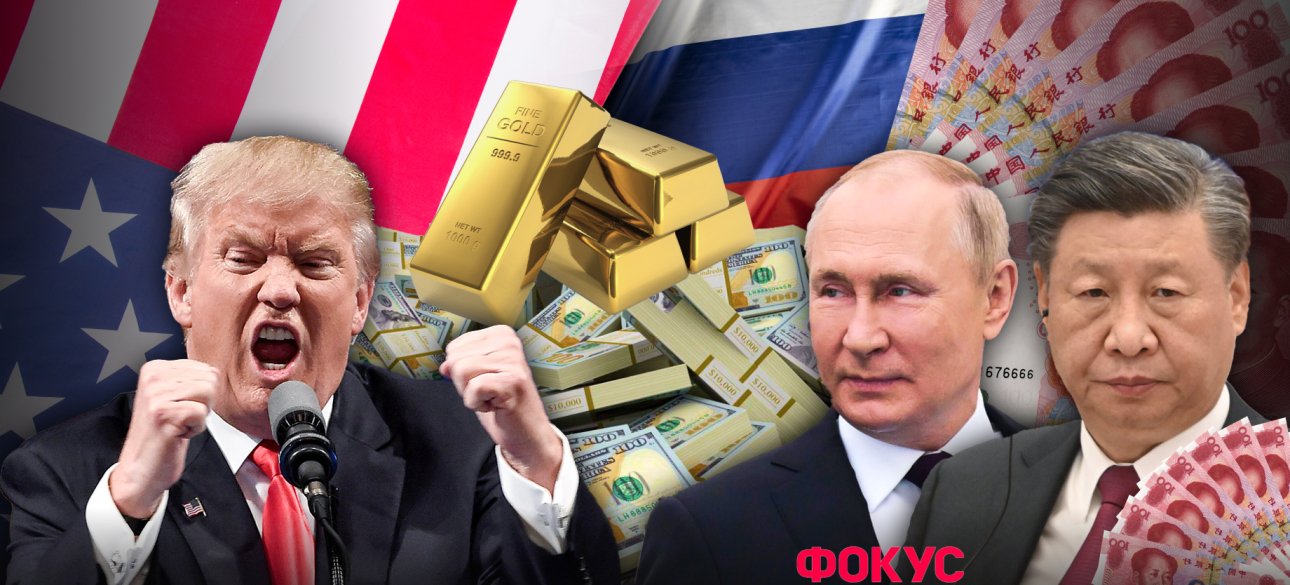
Take a look into their minds and evaluate the ideas that go out there. You will find not so much the clash of ideologies as a common thinking. And this threatens trouble. During the Cold War, American and Soviet leaders really adhered to competitive ideologies. The first advocated freedom and capitalism (or "liberalism"), the second-for different shades of Marxism-Leninism. It is noteworthy that this brilliant situation was quite stable.
The Cold War remained "cold" (unless you were on the front line of proxy) and was eventually resolved peacefully. In contrast, Putin and Si - and now, apparently, Trump - obey not so much ideology as simple instincts: the will to power and the general desire for dominance that includes territorial expansion. "Imperialism" is the word that describes this mentality.
It was the norm for most of the history, including the end of the XIX and the beginning of the XX century, when the great powers competed not for ideas, but for colonies, earth and power. This competition brought directly to the trenches of the First World War. The analogy shows why "the current period is not the repetition of the Cold War. It is more dangerous. " This is what the Condolisa Rice, who was a national security adviser and Secretary of State for George Bush Jr.
, and now manages the Gover Institute at the University of Stanford. The Soviet Union sought to export its ideology to the countries that were under its heel, but otherwise it practiced autarchy, cutting off itself and its vassal states from the world economy. In contrast, China SI, although remains communist by name, is indifferent to the style of government chosen by neighboring countries. But he requires them to subordinate Beijing. The same goes for Putin.
He imagines himself not by reincarnated Lenin or Stalin, but by the new king, following the example of Peter or Catherine, who collects Russian lands and other territories. He tries to decorate this with charlatan historical theories that, for example, Ukrainians are in fact Russians, without suspecting it. But the only coherent story in Putin's head is the story of his own power, which he believes, he should be projected through the irredentistic, expansionist and aggressive Russian state.
Until recently, in the way of neo -imperialism in the form in which it is embodied in Asia or Putin in Eastern Europe, there was usually something great. These were the United States, which had a tradition of exclusivity and often defined themselves either as a liberty lighthouse or as a Crusader in the battle for it.
After the Second World War, the United States created a liberal international order based on certain rules, a system that, at least in theory, holding back the jerving imperialism of the great powers and allowing small countries to thrive. However, American exclusivity declined, starting with Bush and Rice and their wars in Iraq and Afghanistan.
It did not play a prominent role in the first term Trump, and then only timidly returned for Joe Biden, who tried, but unsuccessfully, to imagine world politics as a competition between autocrats and democracies under the leadership of the United States. But America still viewed itself as an anti -imperialist state. Everything has changed this month when Trump took the oath for the second time.
He intimidates Denmark because he wants to include Greenland in the USA, Panama, because he wants to "pick up" his channel built by Americans, and even Canada, which he thinks, is suitable for the 51st state. Putin and Si had nothing to say (except for the cries that "it was time to conclude an agreement" in Ukraine). He also chose an unusual predecessor to greet in his inaugural speech.
If other recent presidents usually referred to any of those whose faces are engraved on Rashmore Mountain, Trump sent his audience to the encyclopedias, praising the 25th President, William McKinley. One reason is that McKinley was a protectionist and widely used trade rates that Trump loves, loves, loves.
Another reason is that he was also the most outstanding imperialist president in American history, capturing Cuba, Puerto Rico, Guam, Philippines, the western islands of Samoa and Wake Island, as well as annexing Hawaii. "Instead of defeating imperialism," says Charles Kupchan, "the US" accepted him ", albeit for a short time. In the 1900 elections, Democrats, who ran against McKinley, warned that" imperialism abroad will quickly and inevitably lead to despotism. at home.
" To enter into the sphere of influence with Trump the sphere of influence. Aida "), where 80 years ago, Franklin Roosevelt, Stalin and Churchill met to produce post -war settlement. Roosevelt wanted to get Stalin's consent to a new order that would declare imperialist aggression outlawed and would be decorated in the form of an organization. He got it on paper. However, in fact, he and Churchill adopted an agreement under which Stalin continued the enslavement of Central and Eastern Europe.
Americans began to perceive Yalta as a defeat of the principle, the Russians - as a victory of power policy, and Poles, Balt and others - as a flashy betrayal. Today, the world seems to be doomed to a new Yalta between Trump, Putin and SI. It will be a pact between imperialists, which is not based on any elevated ideological views, except for the idea that power is a right and coercion is an honest game. This can lead to war between them if they cannot agree on the trophies.










All rights reserved IN-Ukraine.info - 2022